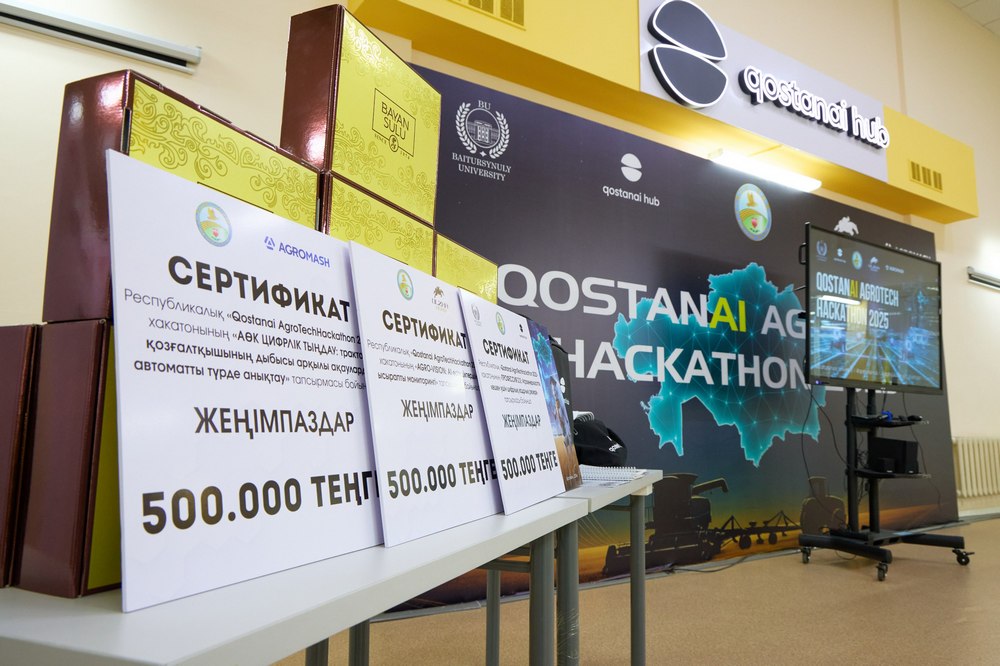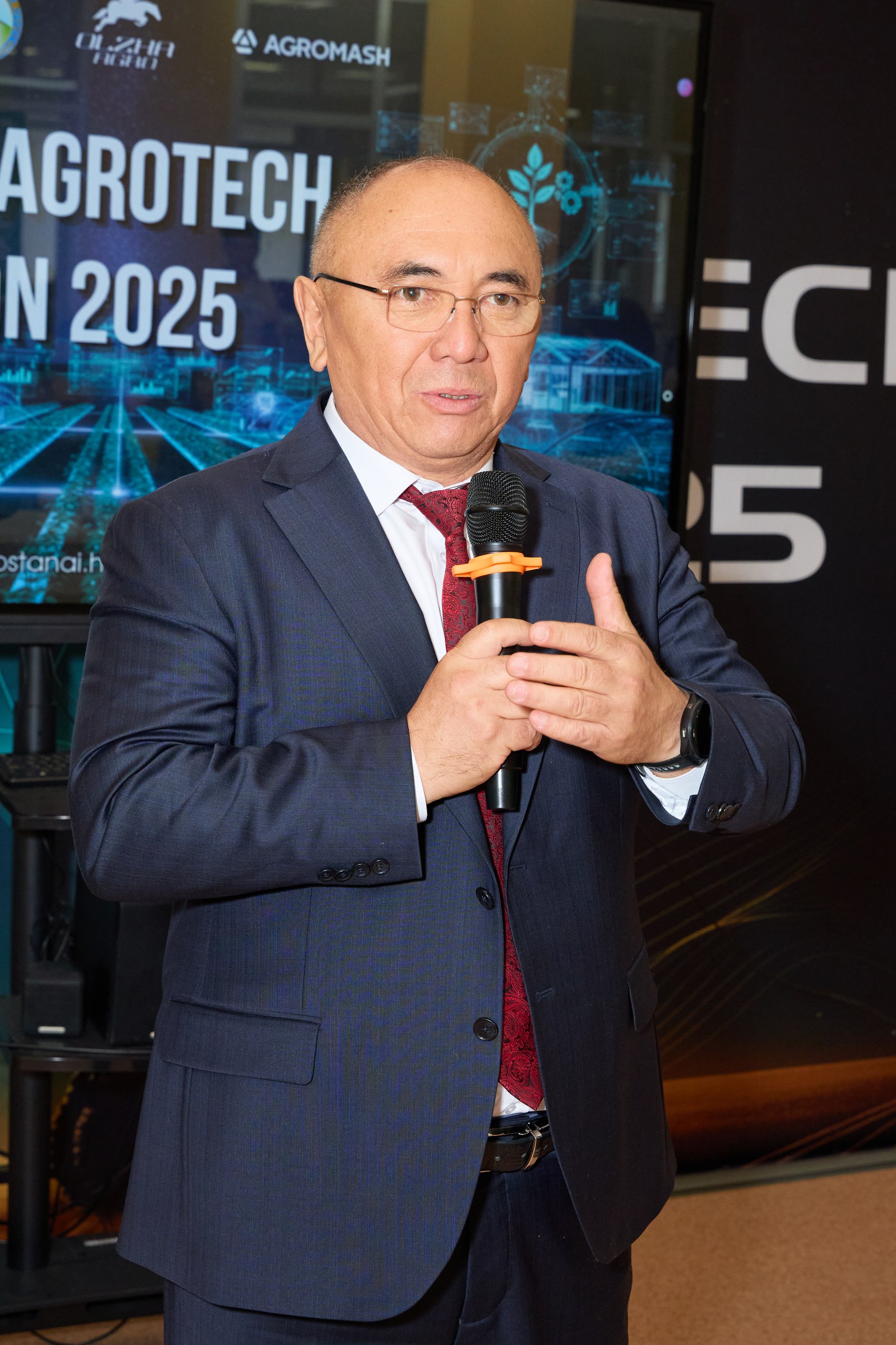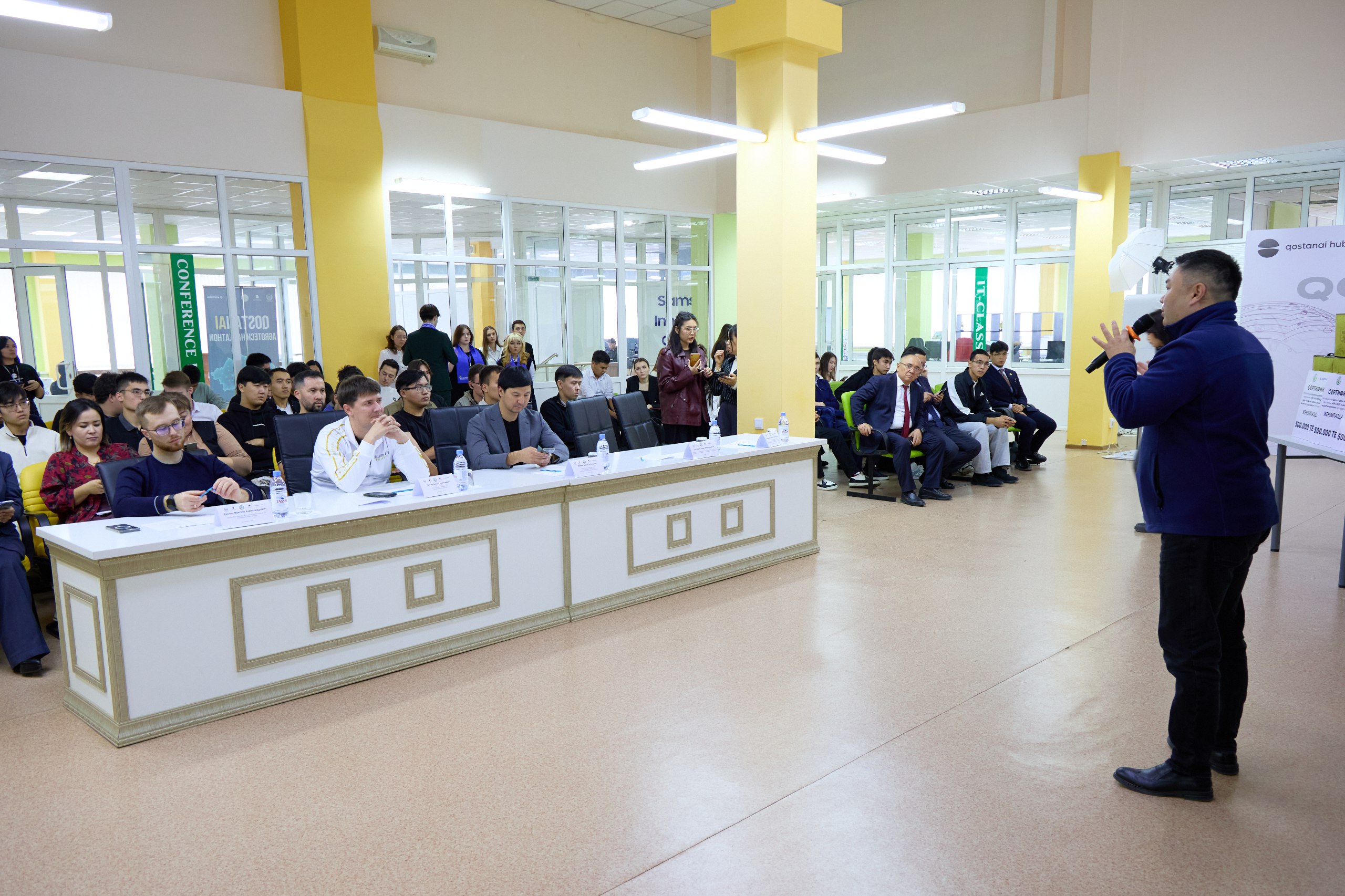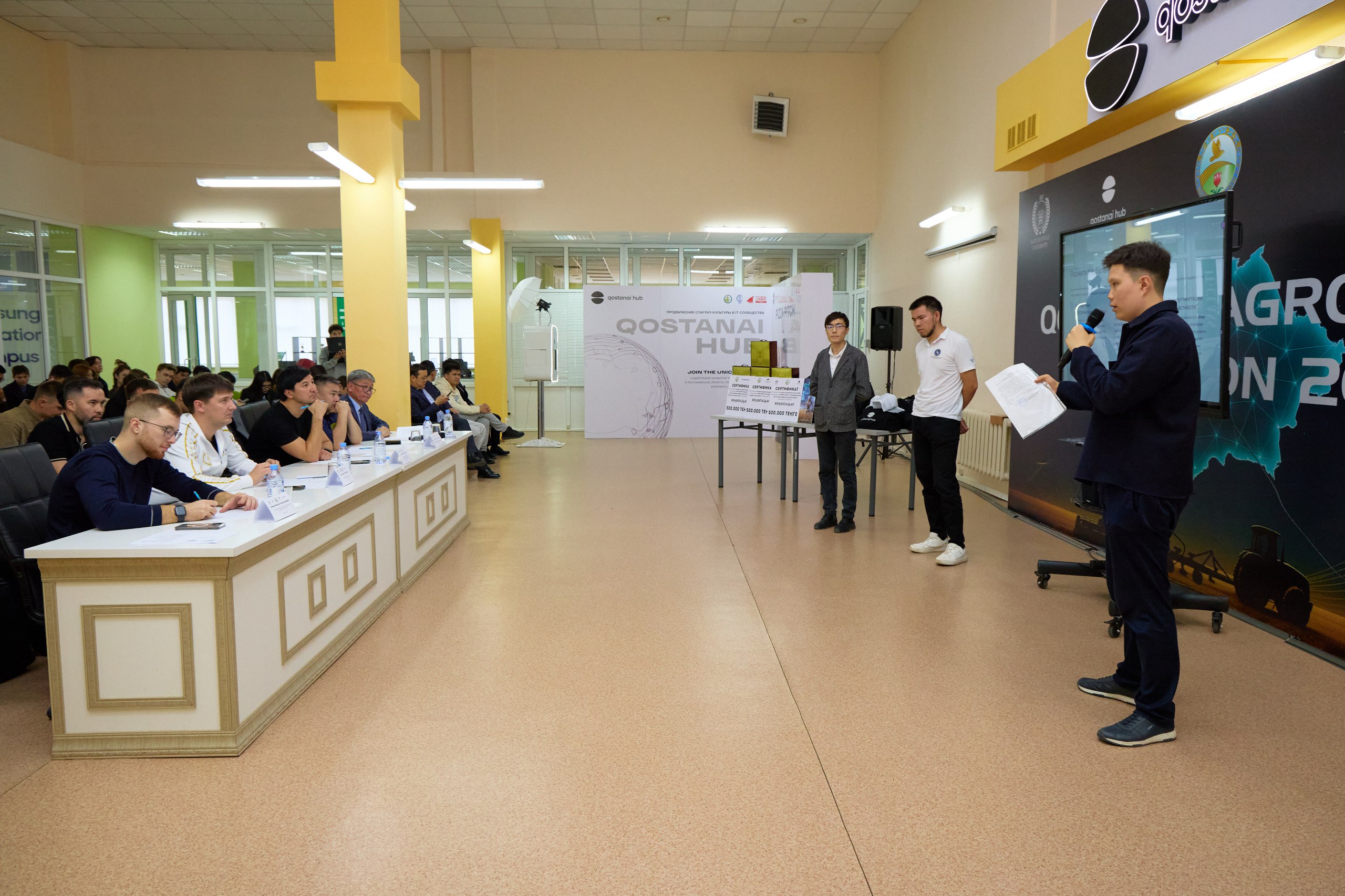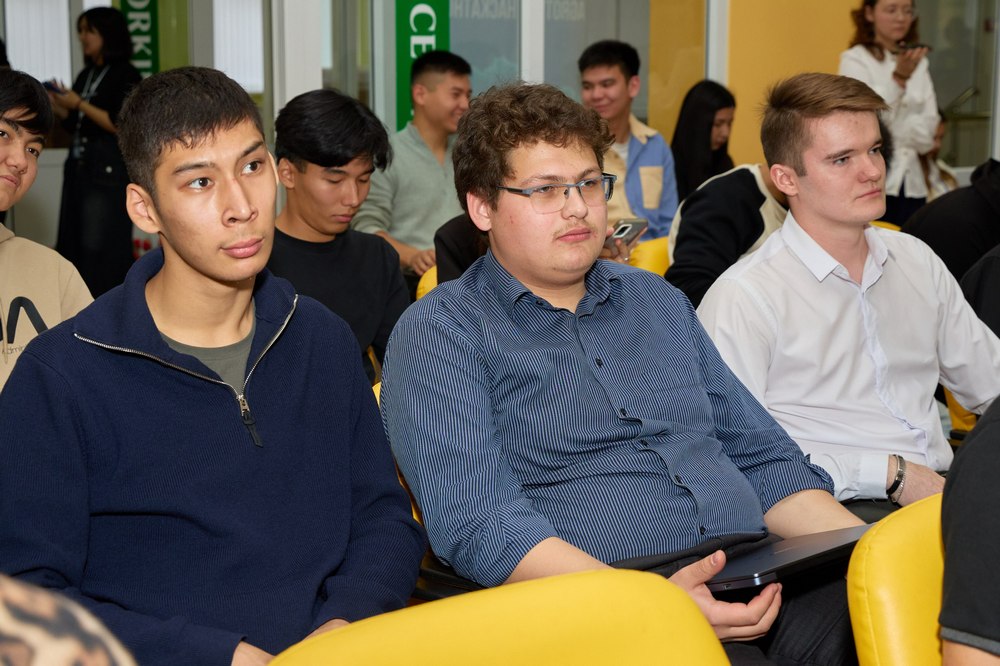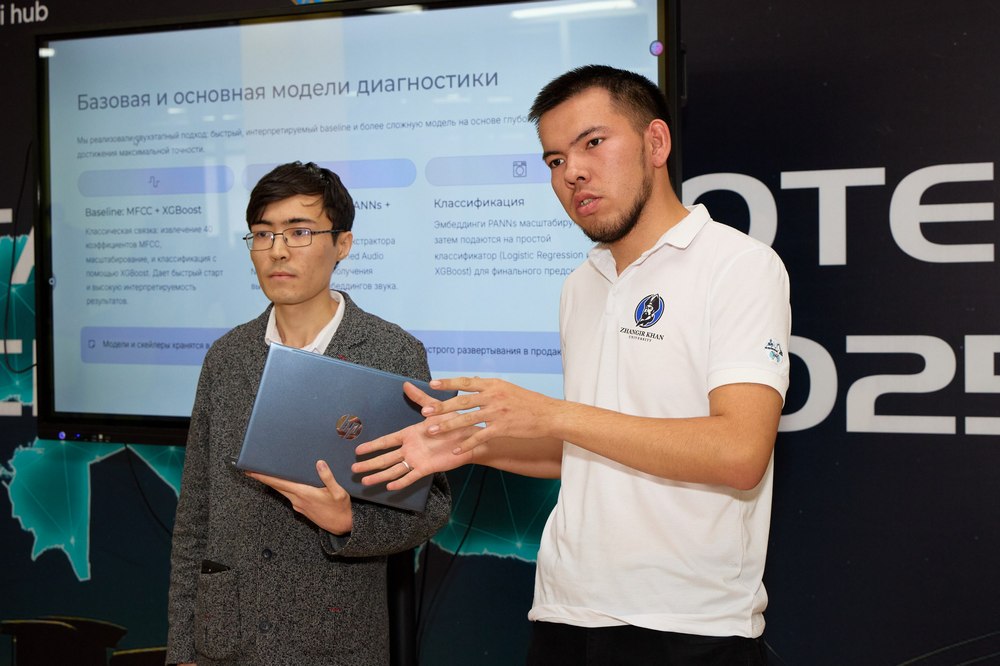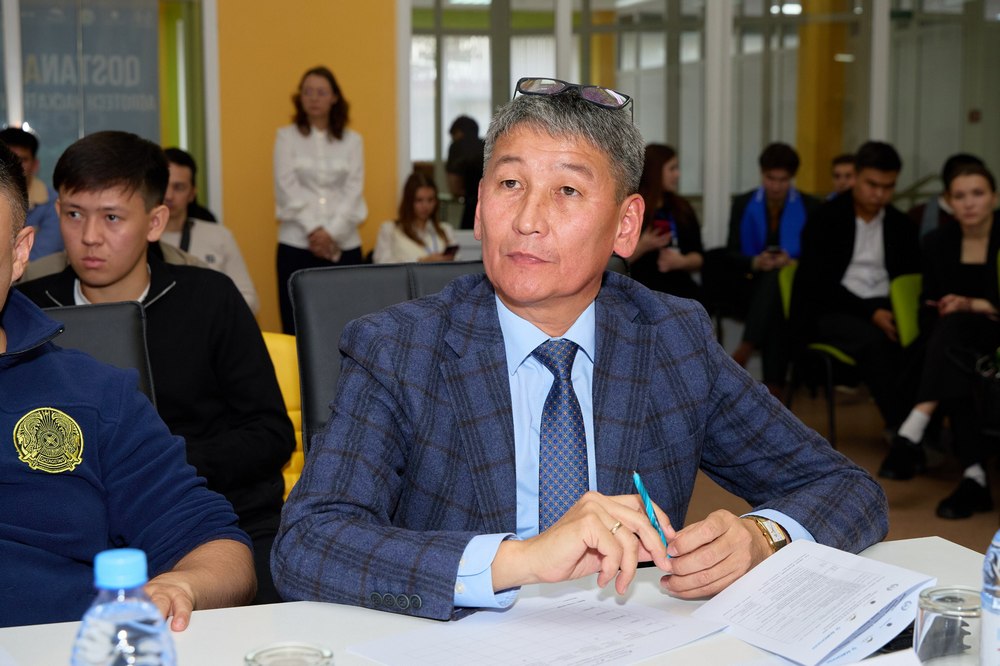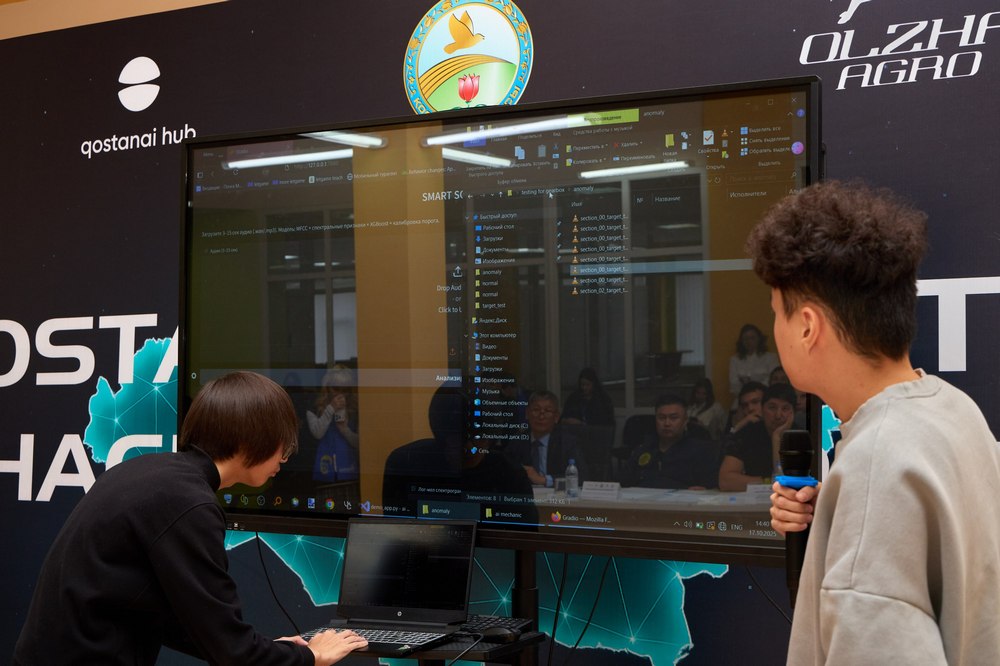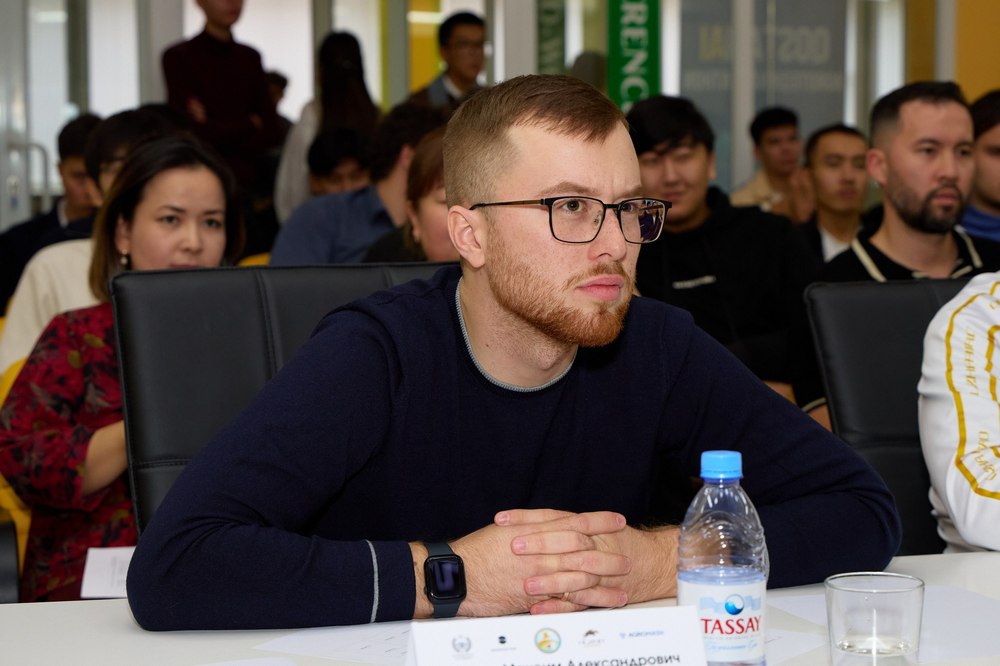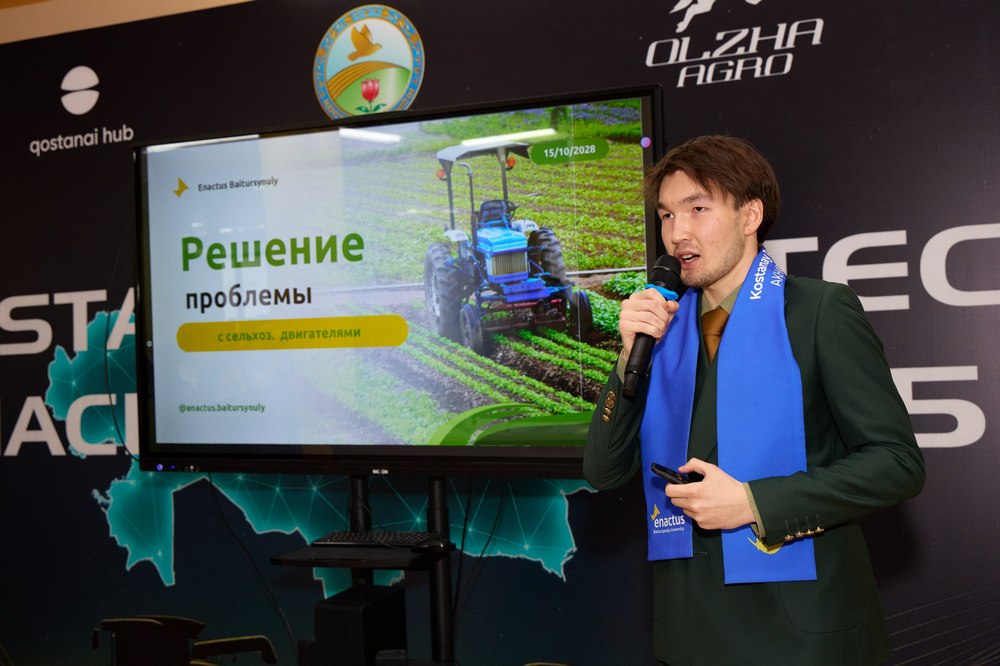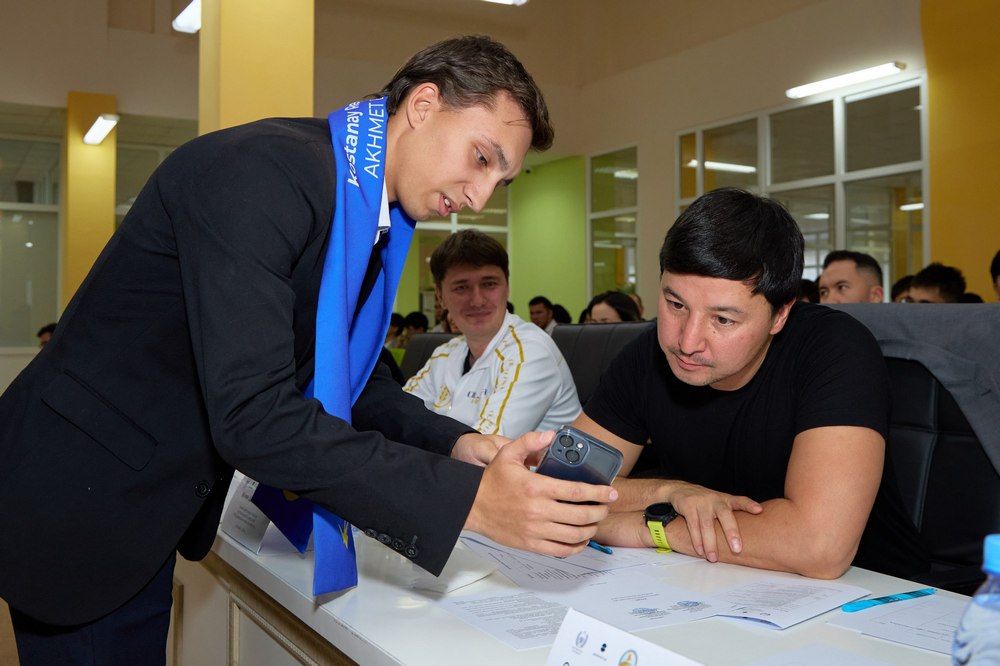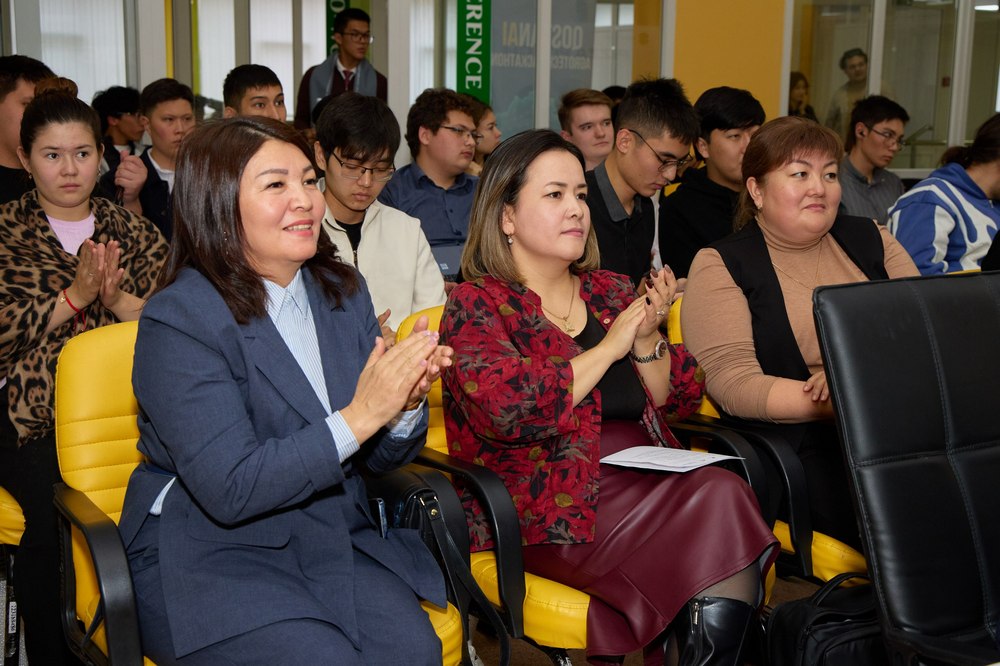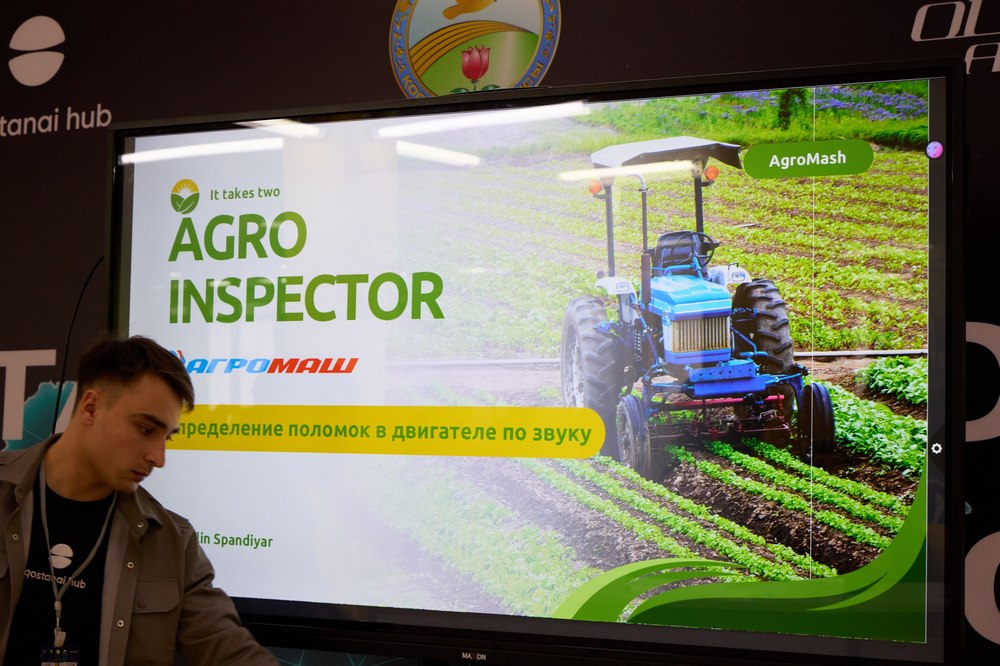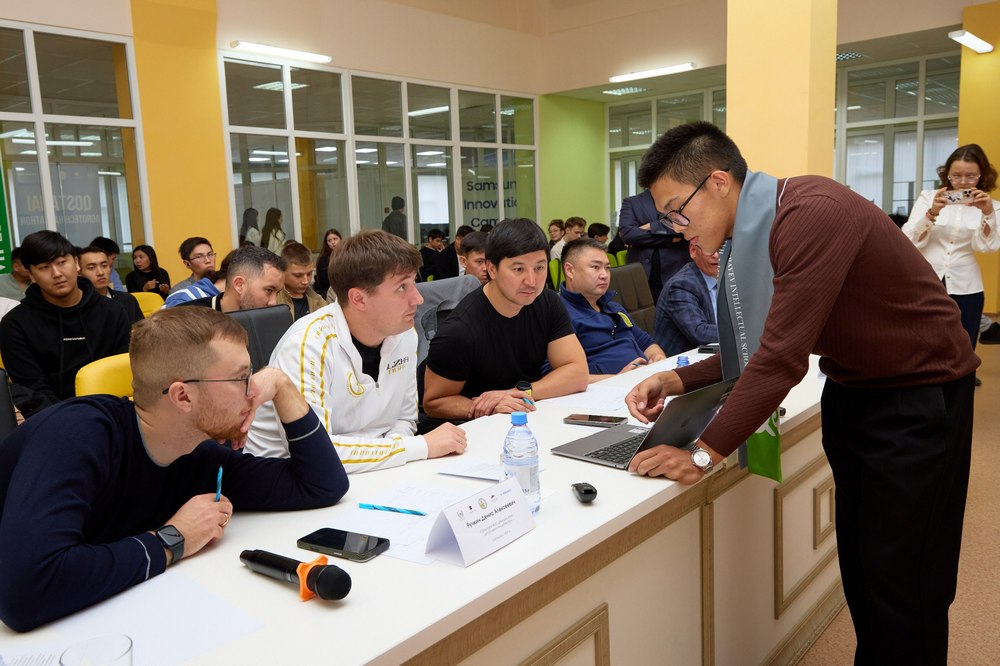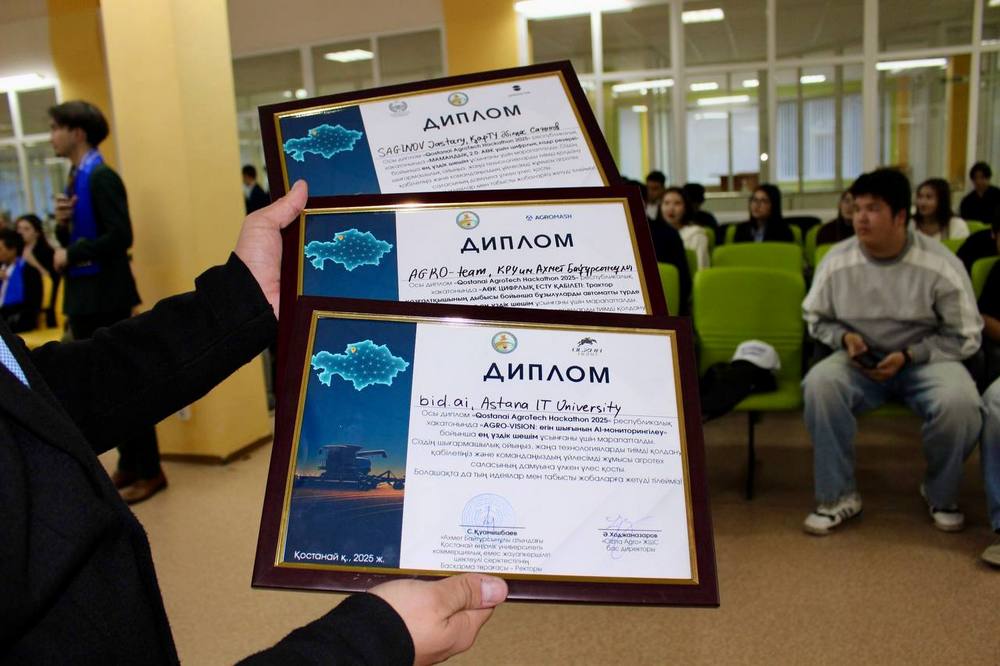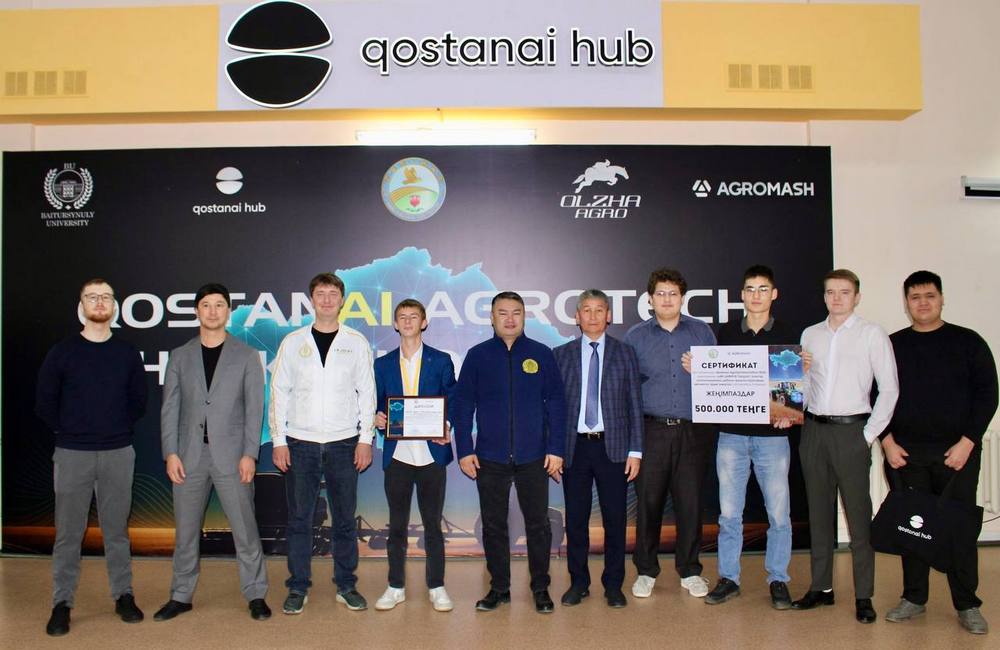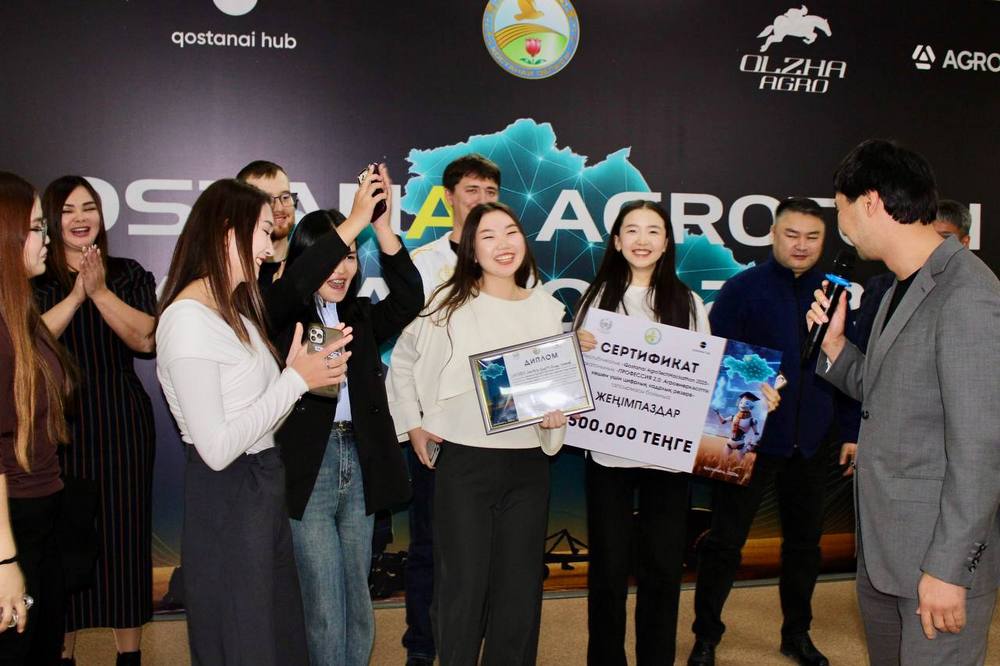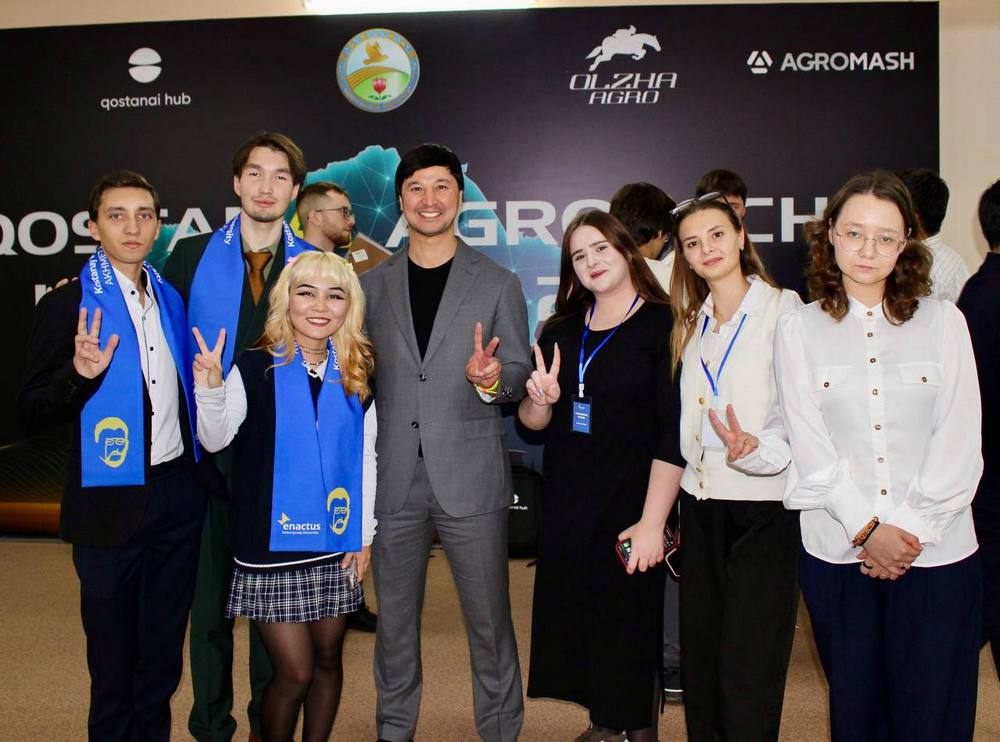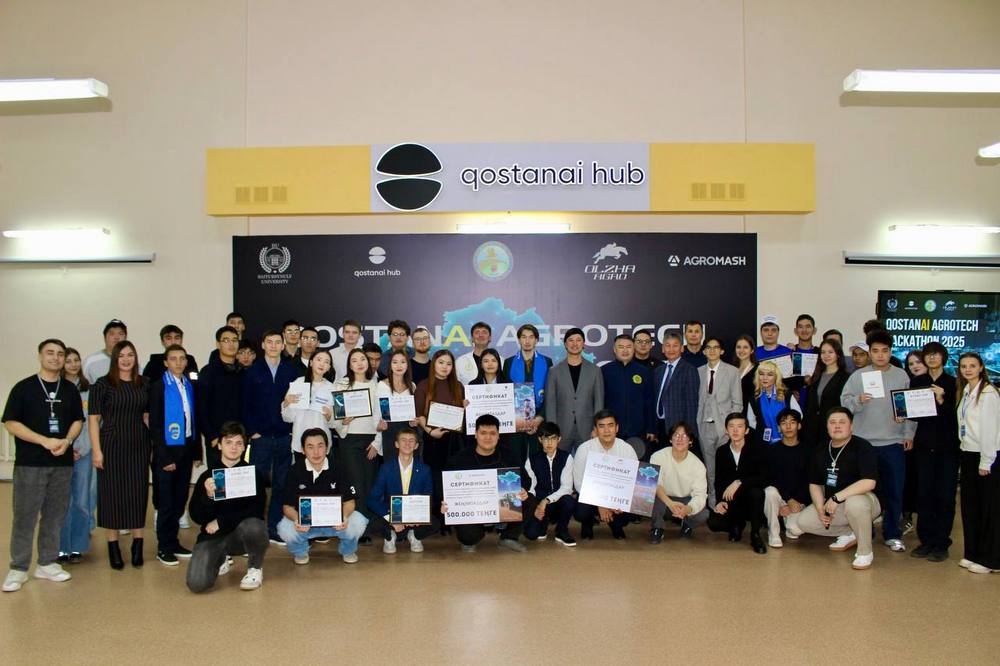The final Demo Day of QOSTANAI AGROTECH HACKATHON 2025 at the Smart Center of Baitursynuly University energized participants with bold ideas and left everyone inspired for the future.
The national hackathon for students — where ideas and technologies address real challenges in the agricultural sector — once again proved that the role of manual labor in agriculture is rapidly evolving. At the same time, the very essence of traditional agribusiness professions is being redefined.
For instance, the integration of artificial intelligence into agriculture can no longer be viewed as an experiment — it is a systemic transformation of the entire industry. Machine vision, autonomous machinery, predictive algorithms, and digital platforms are reshaping the structure of rural labor. It was encouraging to see that young startup teams fully understand this shift and clearly envision the future of high-tech agriculture.
More than 60 applications were submitted from 20 universities across Kazakhstan, with 16 teams making it to the final. The event brought together talented students capable of developing real technological solutions in just a few days. The hackathon proved to be a unique platform where creativity, teamwork, and innovation meet the practical needs of the agro-industrial sector. Over the course of the event, participants not only generated ideas but also developed working prototypes with the potential to transform the industry.
Occupations that once relied primarily on physical strength and practical experience are now becoming increasingly technological. The tractor operator evolves into an operator of intelligent machinery, the agronomist becomes a data analyst, and the farmer transforms into a manager making data-driven decisions. The key shift is not that “machines replace people,” but that the nature of human participation is changing — from repetitive manual work to data analysis, system calibration, and interaction with digital interfaces. Instead of mere execution, humans now engage in collaboration with technological ecosystems where decisions are made jointly by humans and algorithms.
The day began with a startup exhibition showcasing projects from the Kostanay region. On the first floor of the Smart Center, guests explored some of the region’s most promising projects, evaluating innovative ideas and technologies that impressed with their professionalism and vision. This was followed by project defenses, team presentations, and a dynamic quiz with valuable prizes from the organizers.
Rector of Baitursynuly University, Seitbek Kuanyshbayev, wished students bright ideas and successful implementation. Valuable insights and personal advice were shared by distinguished guests of the hackathon — Aryn Orsariev, Chairman of the Board of Karaganda Technical University named after A. Saginov; Danat Zhumin, Chairman of the Board of Baitursynuly University; Alisher Khozhanazarov, CEO of Olzha Agro; and Maksim Ryumin, Head of IT at AgromashHolding KZ.
“The main goal of the hackathon is to unlock students’ potential, accelerate the digitalization of the agricultural sector, and find practical solutions to current challenges,”
— emphasized Elmira Nauryzbayeva, Vice-Rector for Academic Affairs at KRU.
“These ideas will later be implemented in the region’s production processes, opening unique opportunities for both professional and personal growth.”
In the final stage, 16 teams from across Kazakhstan presented their projects — and among the strongest were our own students from KRU!
Danat Zhumin encouraged participants, saying:
“I envy you — your journey is just beginning. Learn from one another and set new goals for yourselves!”
Winners were selected based on four key criteria:
Cash prizes of 500,000 tenge were awarded to the winning teams in three categories:
All finalists received participation certificates for their contribution to the development of the agro-sector’s innovation potential.
The hackathon clearly demonstrated that the modern agricultural sector demands a new culture of labor and education. Today’s agricultural professional must not only understand soil and climate but also grasp the principles of machine learning, sensor systems, and cybersecurity. A new type of agricultural specialist is emerging — one who unites the wisdom of nature with the logic of algorithms.
Respect to KRU for organizing such an outstanding hackathon and for supporting youth innovation initiatives!
